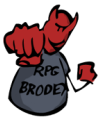I think that’s the fundamental issue holding Dead State back from the greatness it often threatens: it’s trying to be a management game and a roleplaying game and a strategy game, and (perhaps because its origins are fairly humble) it winds up compromising on each of those. I wish it felt more organic, that those terrifying forays into a hostile world had more pay-off than an incremental number adjustment, that not having exactly the right amount of parts didn’t result in a half a dozen people sat around the last refuge at the end of the world with nothing to do.
I do like it, though. Quite a lot more so than this piece probably suggests, and that’s because it’s a game which is far more successful in theme and tone (harder to convey in text) than it is in features. Getting through another day feels meaningful despite the barrage of numbers and the parroted lines. Fights are chilling, flexible and unpredictable rather than perfunctory. Error is a result of your choices rather than an enforced event. The wider world is a sinister, uncharted mystery, with your never quite knowing what’s out there until you encounter it. Decisions are painful. People are problematic. Murder feels bad. The downbeat prettiness of its world is littered with small details, hints of the communities that once were and the fearful squatters that have replaced them.
In terms of recreating the second act of an … of the Dead or 28 x Later film, that point where the world has fallen, scattered survivors have found shared refuge and now they need to take risks to maintain it, Dead State is probably as close as we get. I would say that Dead State probably has too many parts and doesn’t quite know how to fit them all together cleanly, but it just about manages to be more than the sum of them.




























![Glory to Codexia! [2012] Codex 2012](/forums/smiles/campaign_tags/campaign_slushfund2012.png)











